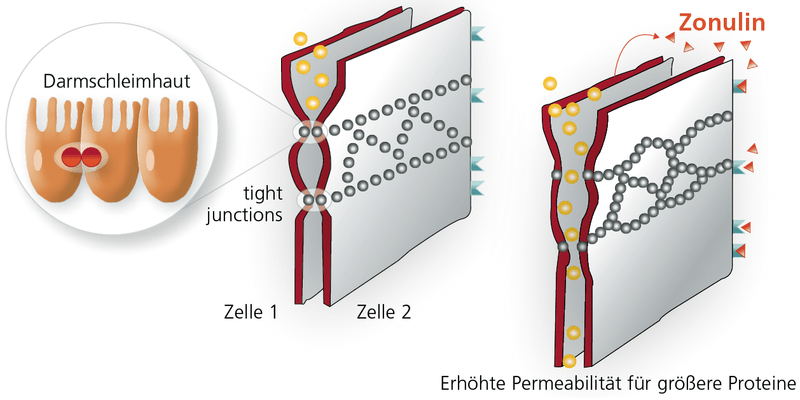Intestinal Flora Analysis
Foundation for our Immune System, Metabolism, and Brain
Gut microbiome analysis (microbiome analysis) plays a crucial role in my practice because gut health is vital for a robust immune system.
We now know that approximately 80% of all immune cells reside in the gut. About 90% of all immune antibodies are produced here.
However, not only immune cells play a crucial role in the gut for immunological balance, but also the billions of microorganisms distributed throughout the entire gut that protect us from pathogenic bacteria.
The immune system and microorganisms exist in a reciprocal dependency; a healthy gut microbiome is a prerequisite for a strong immune system.
An unhealthy lifestyle, poor nutrition, chronic stress, and medication intake (especially antibiotics) lead to damage of the gut microbiome, resulting in what is known as dysbiosis or dysbacteriosis. This dysbacteriosis then allows harmful microorganisms to thrive, which can cause inflammation and disturbances of the barrier function in the gut, and subsequently weaken the immune system throughout the entire organism.
Consequences of a Disturbed Gut Microbiome
When the interaction between gut bacteria and the gut immune system is disturbed, immune deficiency or an immunological overreaction can occur, potentially leading to the development of allergies and chronic inflammatory bowel diseases.
In addition to a healthy gut microbiome, the intestinal barrier is also of crucial importance. A healthy intestinal barrier ensures that the intestinal wall allows nutrients and fluids to pass through while repelling bacteria and toxins. If the intestinal barrier is compromised, this is referred to as “leaky gut”.
The superficial cells of the intestine, which are interconnected and prevent the passage of toxins, ensure a stable barrier. If this barrier is compromised, toxins, bacteria, proteins, and other substances can penetrate the intestine and enter the bloodstream.
Diseases that may be associated with dysbiosis and a compromised intestinal barrier include:
- Obesity
- Allergies
- Autoimmune Diseases
- Colorectal Cancer
- Rheumatoid Arthritis
- Cardiovascular Diseases
- Urinary Stones
- Irritable Bowel Syndrome
- Diabetes
- Neuropsychiatric Disorders
For this Reason, within the Scope of Gut Microbiome Analysis, I Conduct the Following Examinations in My Practice:
- Intestinal flora analysis
- Colonization with Pathogenic Microbes
- Acid-Base Balance
- Leaky Gut, Inflammation, Food Intolerances
- Digestive Disorders
- Hepatic Stress
Typical findings for gut microbiome analysis and stool diagnostics can be found here.


